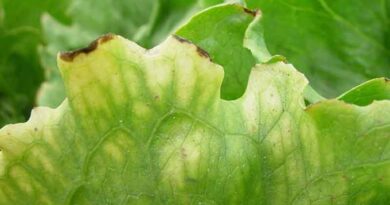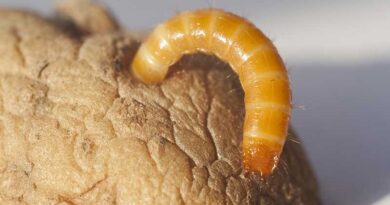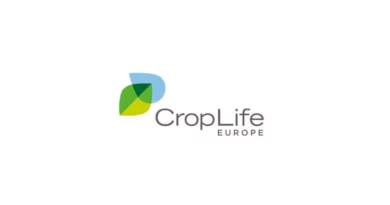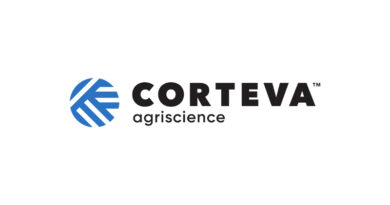Agdia Releases ImmunoStrip® for Detection of Bean Yellow Mosaic Virus (BYMV)
07 December 2023, Elkhart: Agdia, Inc., a market leader in plant diagnostics, is happy to announce the commercialization of a product for detection of Bean yellow mosaic virus on their popular ImmunoStrip® platform.
Bean yellow mosaic virus (BYMV) is a member of the genus Potyvirus and known to reduce yields significantly in several economically important hosts, including food, forage, ornamental and seed crops. Furthermore, common weedy plants can function as overwintering sites for aphids and inoculum reservoirs. Common hosts include alfalfa, common bean, cowpea, faba bean, Gladiolus hybrids, lupin, peanut, soybean, sweet pea and several species of Trifolium (clovers). This virus was first observed infecting beans in 1931 in Wisconsin. Since then, BYMV has spread to all regions where its wide range of leguminous hosts are cultivated and has worldwide distribution.
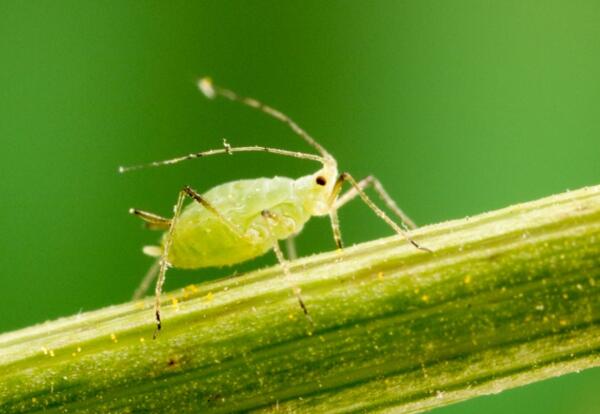
Like all members of the genus Potyvirus, BYMV is spread locally by several species of aphids (Hemiptera: Aphididae) in a non-persistent, non-circulative manner (Figure 1.). Like other viruses transmitted in this manner, BYMV transmission efficacy is short-lived in the aphid vector, but efficient, nevertheless. High rates of infection are common within and between fields when aphid populations proliferate. Aphid vectors acquire the virus within seconds through stylet probes of plant tissue. Virions are localized for transmission within the aphid’s stylet where they are bound to the wall of the feeding apparatus via a viral-encoded protein. Soon after virus acquisition, aphids must emigrate from infected plants and feed on healthy plants for horizontal BYMV transmission to occur.
Bean yellow mosaic virus is known to be transmitted efficiently via mechanical inoculation. Nevertheless, mechanical inoculation is not typically paramount for field-grown crops; plants experience relatively little physical contact between planting and harvesting. Seed transmission is known to occur in some hosts at low levels (less than 1.0%) but is not typically considered an important part of the epidemiological model for BYMV. Nevertheless, the accumulation of BYMV infections in fields can pose a threat to breeding programs and commercial seed production.
Symptoms of BYMV infection vary by host, virus strain, environmental conditions and the stage of growth the host was in when infection occurred. Furthermore, the cultivar of host and corresponding presence of resistance genes therein contribute greatly to symptom development

and severity. Typical symptoms on susceptible legumes include leaf malformation and epinasty, chlorotic lesions and systemic mosaic and mottling (Figure 2.). Young plants can become stunted and present necrosis of the topmost foliage, and pods can be malformed and mottled.
Due to overlapping host range and vectors, mixed field infections of Alfalfa mosaic virus (AMV), Bean common mosaic virus (BCMV), Cucumber mosaic virus (CMV) and BYMV are common. Symptomology is similar for this suite of viruses, making visual diagnosis impossible in many instances. Furthermore, co-infections of BYMV and CMV are known to exacerbate symptoms on susceptible hosts.
Agdia states their new ImmunoStrip® was tested against a broad exclusivity panel of potential cross-reactors, including Alfalfa mosaic virus, Bean common mosaic virus, Bean Pod Mottle Virus, Cowpea mosaic virus, Lettuce mosaic virus, Peanut mottle virus, Southern Bean Mosaic Virus and Soybean mosaic virus. This test is specific for detection of BYMV, with no cross-reactions observed. Furthermore, this test will detect all the most common isolates of BYMV. Agdia’s new ImmunoStrip® can be used to test leaf, petiole and stem tissue. Please see Agdia’s product page for the BYMV ImmunoStrip® for a comprehensive validation report.

Agdia’s ImmunoStrip® platform provides end-users with unrivaled utility; samples can be tested in the field or lab by those having no previous diagnostic experience, and results are visualized within 30 minutes. Furthermore, this product includes everything necessary to perform a test and does not require special equipment. Test protocol is simple and includes 1) Sample collection and extraction in Agdia buffer bags, 2) Exposing the ImmunoStrip® to the sample extract, and 3) Allowing results to develop. Test results are visualized as a single control line or a control and test line for negative or positive results, respectively (Figure 3.). The introduction of Agdia’s BYMV ImmunoStrip® expands their catalog to 53 plant pathogen products on this platform.
The BYMV ImmunoStrip® is sold in kits of 5 or 25 strips, and kits include everything necessary to perform a test. Agdia provides a one-year warranty and comprehensive customer support on all purchased products. For more information on these products, in addition to Agdia’s full catalog of pathogen detection products, visit the company’s website at www.agdia.com, e-mail info@agdia.com, phone 1-574-264-2615 (toll-free 800-622-4342) or fax 1-574-264-2153.
Also Read: World Soil Day 2023: ICRISAT Leverages Innovation for Sustainable Agriculture
(For Latest Agriculture News & Updates, follow Krishak Jagat on Google News)




